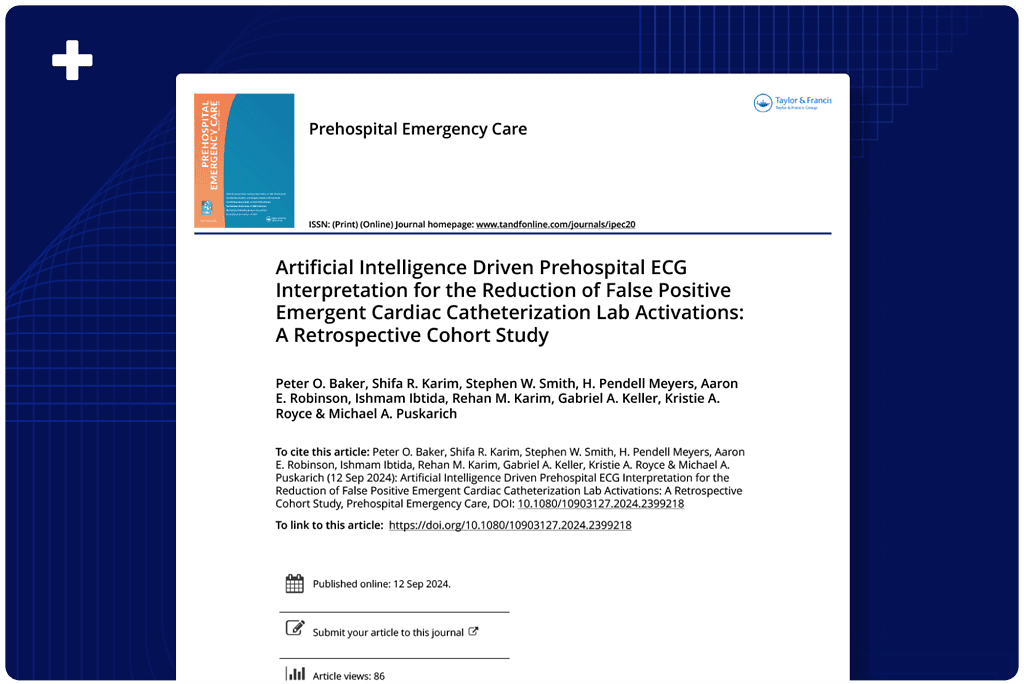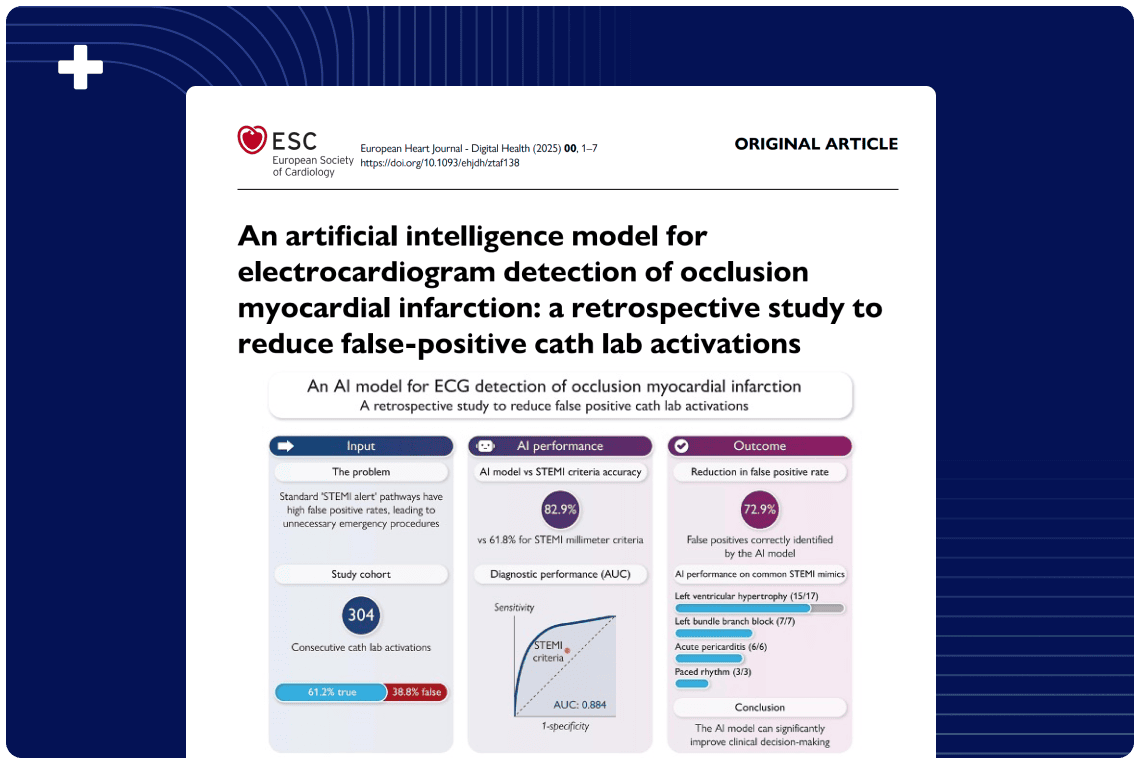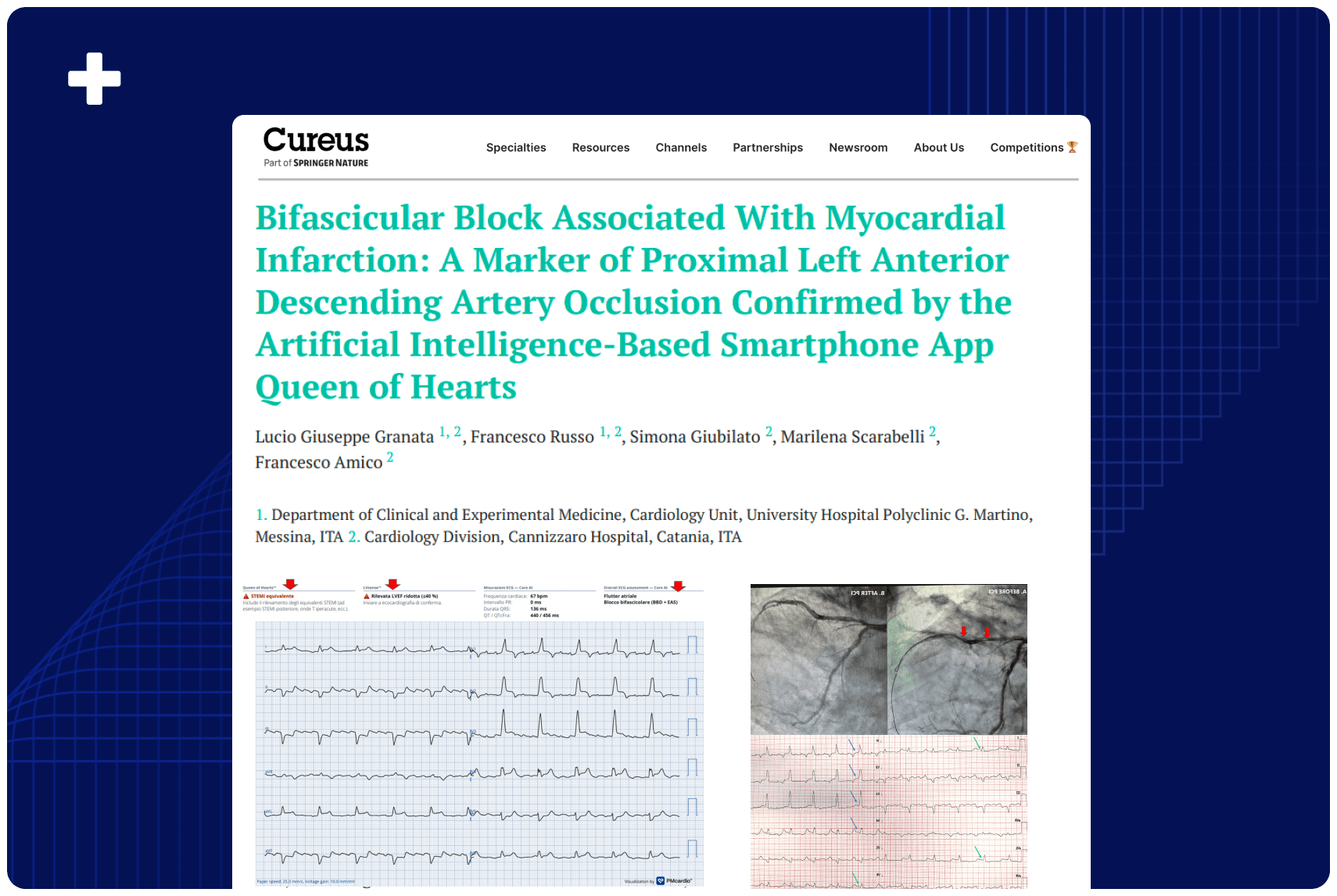Overview:
Activating the cardiac catheterization lab too frequently can strain healthcare resources, yet overlooking an acute myocardial infarction carries significant risk. Evaluated in a prehospital setting by Hennepin Emergency Services (USA), the PMcardio STEMI AI ECG Model showed potential to optimize emergency cardiac care and improve resource efficiency by reducing false catheterization lab activations by 34% without missing any “true” heart attacks.
Published In: Pre-hospital Emergency Care
Presented Date: September 12, 2024
Objectives
Data suggest patients suffering acute coronary occlusion myocardial infarction (OMI) benefit from prompt primary percutaneous intervention (PPCI). Many emergency medical services (EMS) activate catheterization labs to reduce time to PPCI, but suffer a high burden of inappropriate activations. Artificial intelligence (AI) algorithms show promise to improve electrocardiogram (ECG) interpretation. The primary objective was to evaluate the potential of AI to reduce false positive activations without missing OMI.
Methods
Electrocardiograms were categorized by (1) STEMI criteria, (2) ECG integrated device software and (3) a proprietary AI algorithm (Queen of Hearts (QOH), Powerful Medical). If multiple ECGs were obtained and any one tracing was positive for a given method, that diagnostic method was considered positive. The primary outcome was OMI defined as an angiographic culprit lesion with either TIMI 0–2 flow; or TIMI 3 flow with either peak high sensitivity troponin-I > 5000 ng/L or new wall motion abnormality. The primary analysis was per-patient proportion of false positives.
Results
A total of 140 patients were screened and 117 met criteria. Of these, 48 met the primary outcome criteria of OMI. There were 80 positives by STEMI criteria, 88 by device algorithm, and 77 by AI software. All approaches reduced false positives, 27% for STEMI, 22% for device software, and 34% for AI (p < 0.01 for all). The reduction in false positives did not significantly differ between STEMI criteria and AI software (p = 0.19) but STEMI criteria missed 6 (5%) OMIs, while AI missed none (p = 0.01).
Conclusions
In this single-center retrospective study, an AI-driven algorithm reduced false positive diagnoses of OMI compared to EMS clinician gestalt. Compared to AI (which missed no OMI), STEMI criteria also reduced false positives but missed 6 true OMI. External validation of these findings in prospective cohorts is indicated.
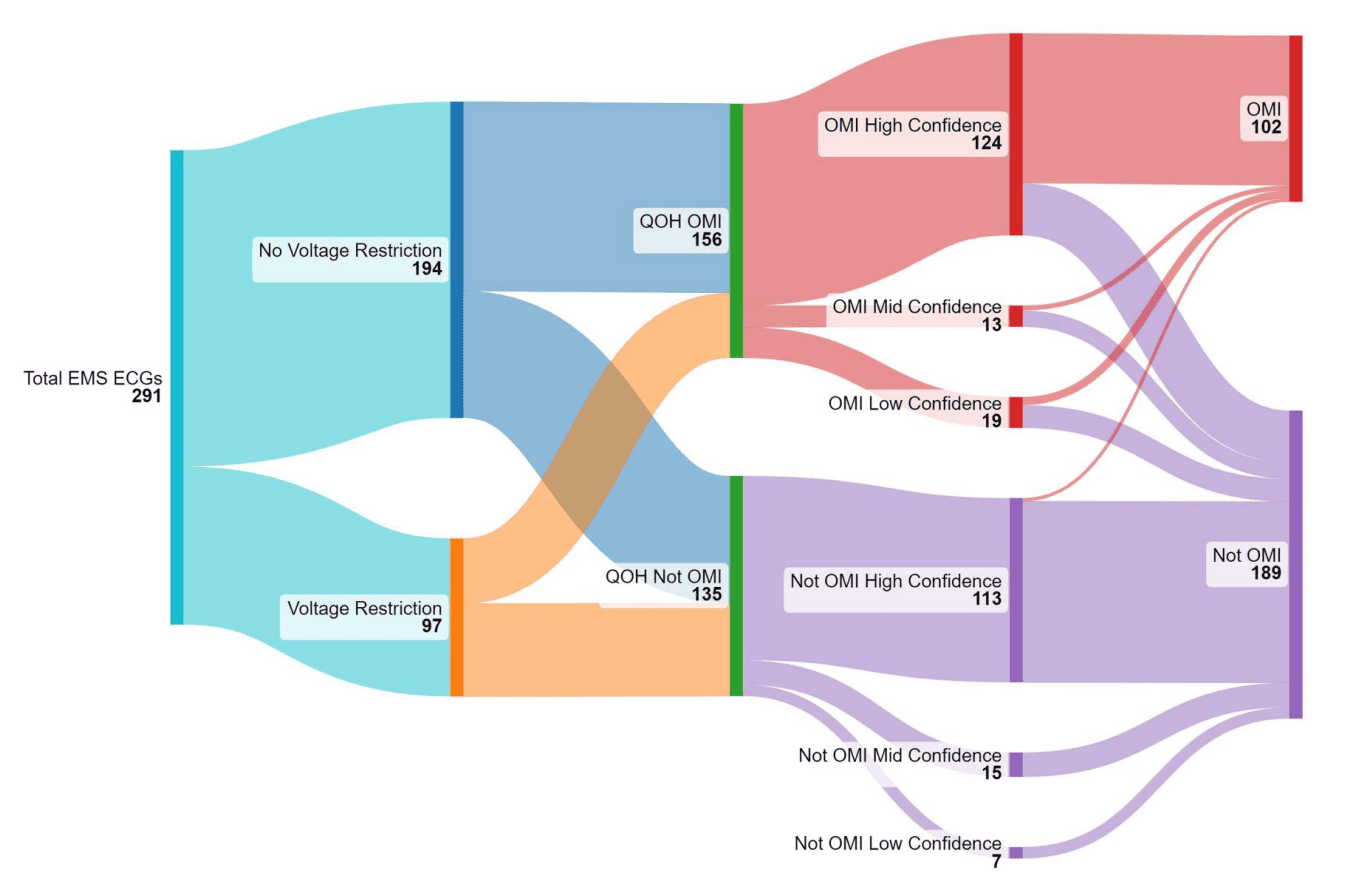
Authors: Peter O. Baker, Shifa R. Karim, Stephen W. Smith, H. Pendell Meyers,Aaron E. Robinson, Ishmam Ibtida, Rehan M. Karim, Gabriel A. Keller, Kristie A. Royce Michael A. Puskarich

